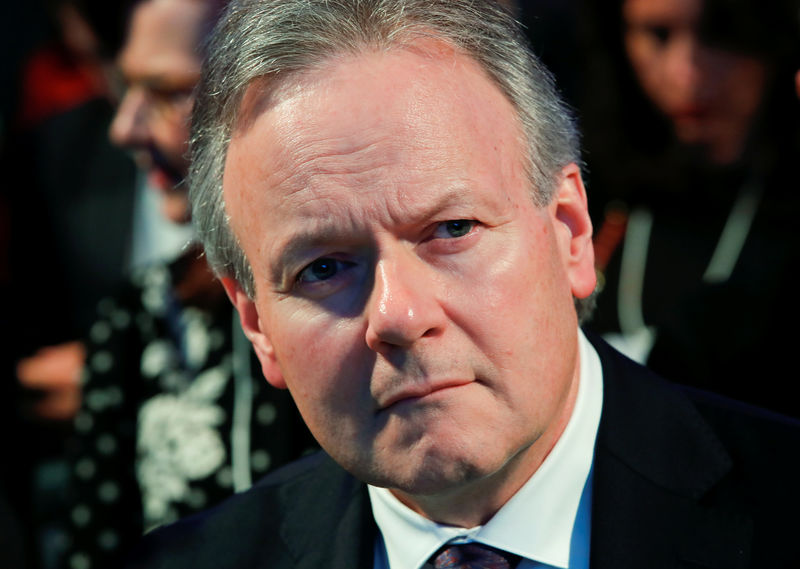(Bloomberg) -- Explore what’s moving the global economy in the new season of the Stephanomics podcast. Subscribe via Apple Podcast, Spotify (NYSE:SPOT) or Pocket Cast.
Stephen Poloz, who resisted this year’s global rush to cut interest rates, won’t seek a second term at the helm of the central bank when his mandate ends in June.Poloz informed the Bank of Canada’s board of directors and Finance Minister Bill Morneau of his decision, according to a statement Friday from the bank.
“It has been a privilege to serve as the ninth Governor of the Bank of Canada,” Poloz said in a statement posted to the bank’s website. He called his time at the bank, which began in 2013, “the most fulfilling of my long career.”
The Canadian central bank governor is preparing to leave the central bank with its 1.75% benchmark interest rate among the highest in advanced economies. Poloz -- who was among the few central bankers to raise interest rates in 2017 and 2018 as the nation’s economy began to fully recover from the last recession -- has been reluctant to reverse course, citing a relatively robust expansion and concerns that lower borrowing costs could fuel the nation’s already high household debt levels.
“The issue of course is we’re at a very delicate point in time for the Canadian economy.” Brian DePratto, senior economist at Toronto-Dominion Bank said by phone. “The Bank of Canada is balancing growth concerns versus financial stability concerns. Certainly they’ve been emphasizing the latter quite a bit in my view in the recent communication.”
Debt Burden
Since Poloz came to power, Canadian households debt continued to increase, and remain near record highs, which will almost certainly act as a millstone for growth for years to come. Bank of Canada officials most recently defended their decision not to follow Federal Reserve at a rate decision this week, citing the nation’s resiliency in the face of global uncertainty.
His decision not to seek a second term means replacing Poloz becomes one of the first orders of business for Prime Minister Justin Trudeau’s second term in government, after a divisive election in October that left him facing a fragmented parliament.
Early front-runners include the governor’s chief deputy, Carolyn Wilkins, who would be the first woman to take the job. Jean Boivin, the head of BlackRock Inc (NYSE:BLK).’s research unit, is also being touted as a stronger contender. Other front-runners are Tiff Macklem, dean of the University of Toronto’s Rotman School of Management, and Paul Beaudry, who joined the Bank of Canada earlier this year as deputy governor.
Still, even after raising interest rates, borrowing costs were kept near the lowest levels under his watch than at any time in the central bank’s eight-decade history. That ultimately kept the economy afloat long enough to oversee one of the fastest increases in jobs and probably the largest accumulation of wealth in the nation’s history, as cheap money inflated the value of real estate and financial assets.
But Poloz’s efforts to return the economy to full health -- where it’s not reliant on low interest rates, housing and debt -- ultimately fell short as Canada grappled with the lingering effects of the last recession and wrestled with a litany of new headwinds including a once-in-a-generation collapse in commodity prices and the impacts of global trade tensions.
Poloz’s announcement comes amid a period of turnover atop the world’s major central banks. Christine Lagarde just replaced Mario Draghi as president of the European Central Bank, while Bank of England Governor Mark Carney is set to step down in January. Carney was Poloz’s predecessor at the Bank of Canada.It’s a trend he inherited
By one measure, Poloz could lay claim to be one of Canada’s most successful central bankers ever -- the country is closer to a state of full employment and stable prices than at any time since the 1960s.
